On This Page: [hide]
Navigating the decision to buy an established website or start a new can be a pivotal choice for entrepreneurs stepping into the digital market space in 2024. With the allure of immediate access to an existing audience, SEO benefits, and potential for quick revenue, the advantages of purchasing over building from scratch are compelling.
This article aims to guide you through the benefits of acquiring a pre-existing online business, the strategic considerations for your investment, and how to sidestep common pitfalls, ensuring a successful digital venture. By outlining key strategies, from choosing the right marketplace to the critical role of cybersecurity, we aim to provide a clear roadmap to making an informed decision and scaling your new asset into a thriving online enterprise.
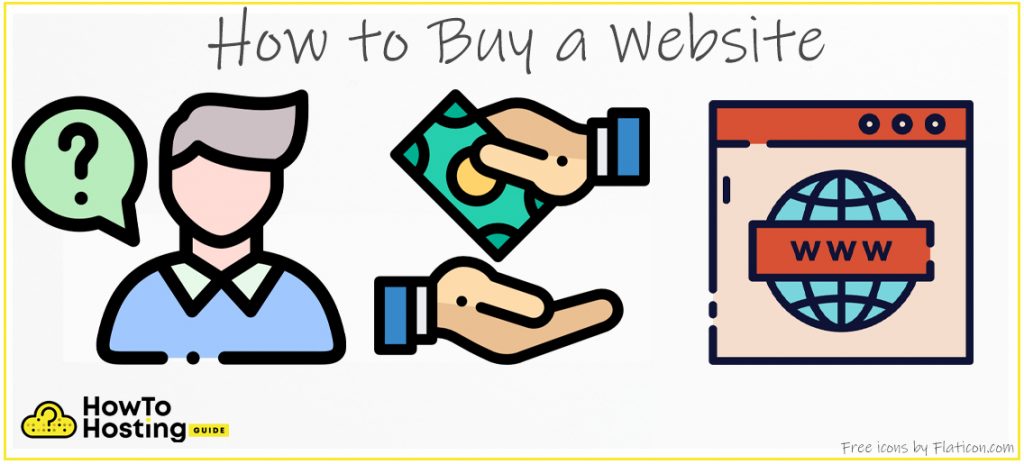
Why Consider Buying a Website Over Starting From Scratch in 2024?
Entering the broad arena of online entrepreneurship in 2024 poses its unique set of challenges and opportunities. Among the pivotal decisions facing aspiring business owners is whether to invest in an existing website or to embark on the journey of starting from zero. Buying a website, as opposed to creating one from scratch, has surfaced as a compelling option for many, given the rapidly evolving digital landscape.
One of the primary reasons to consider purchasing an existing website is the immediate access to an established audience and customer base. This key factor dramatically reduces the time and effort required to build visibility and trust, which are crucial for generating revenue online. When you buy a website, you’re not starting in obscurity; you’re stepping into the shoes of someone who’s already laid a foundation, offering instant leverage in terms of SEO positioning and brand recognition.
Moreover, the aspect of instant revenue can’t be overlooked. A well-chosen, pre-existing website can come with a verified income stream, making it possible to see a return on your investment from day one. This is unlike starting a new site, where the initial months or even years can be dominated by investment rather than income, without any guarantee of success.
Another significant advantage is the time saved that would otherwise be spent on website development, design, and the trial-and-error process of identifying a viable audience. With an already operational site, many of the technical and logistical hurdles have been overcome. This leaves more room to focus on growth strategies, content creation, and enhancing user engagement, rather than getting bogged down by the basics.
Finally, considering the competitive nature of the online business world, where market saturation is an ever-present challenge, buying an existing website can offer a unique competitive edge. Instead of struggling to make your voice heard in a crowded niche, purchasing a site can provide a platform that already has its loyal followers, allowing for a significantly smoother and potentially faster trajectory to achieving your business goals.
In summary, while both paths offer distinct advantages, the prospect of buying an existing website in 2024 holds a particular appeal for those looking to bypass the initial stages of uncertainty and groundwork. It presents an opportunity to directly step into a role of revenue generation and scale from there, making it an option worth considering for anyone serious about making a mark in the online business sphere.
Top Marketplaces to Find Profitable Websites for Sale in 2024
Finding the right platform to purchase a profitable website in 2024 can be a game-changer for entrepreneurs and investors alike. With the digital economy booming, acquiring an established website has become a popular strategy to enter the market or expand existing portfolios. This article explores the top marketplaces tailored for those looking to make such an investment, emphasizing their unique features and benefits.
Understanding the Appeal of Flippa and Empire Flippers
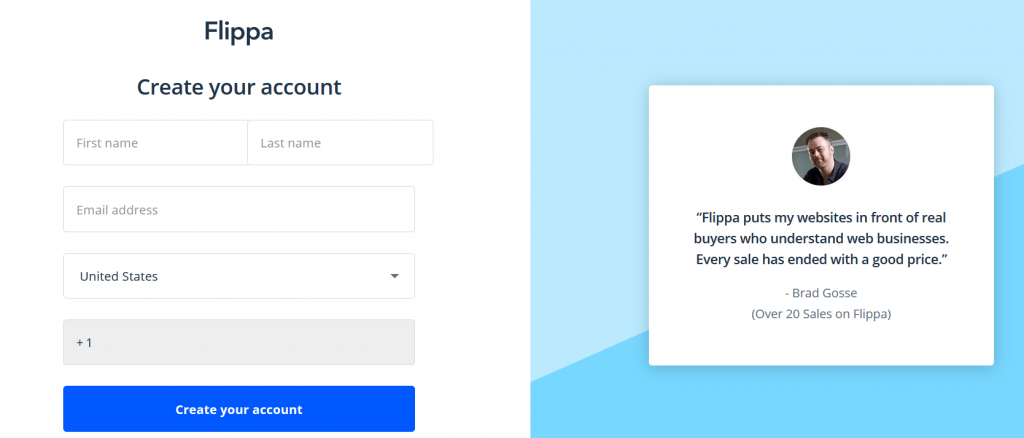
The attraction to platforms like Flippa and Empire Flippers lies in their proven track records and specializations. Flippa prides itself on being a pioneering auction site for web properties, offering a bustling marketplace for a wide array of online businesses.
Its transparent listing process and active bidding environment make it ideal for sellers looking for a quick sale and buyers hunting for a potentially underpriced gem.
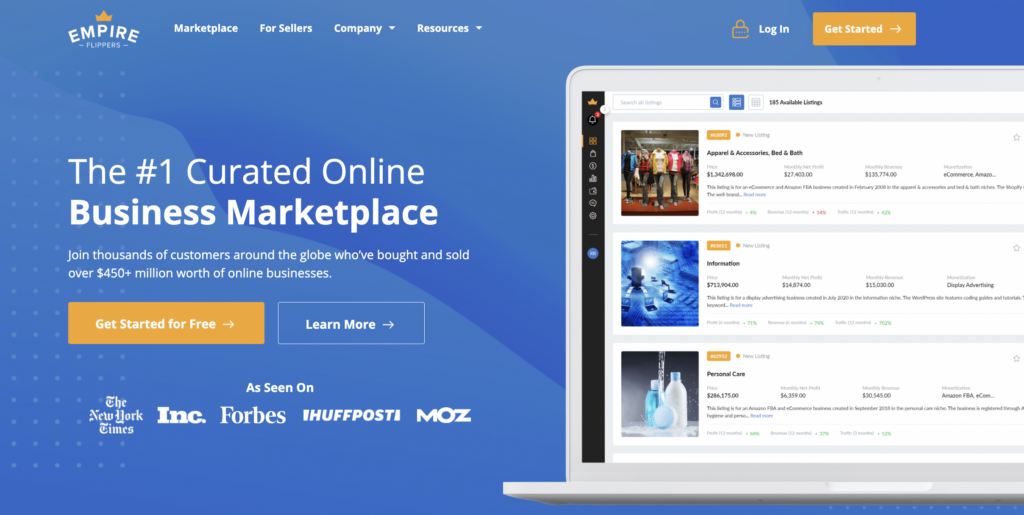
On the other hand, Empire Flippers stands out for its rigorous vetting process, ensuring only legitimate and profitable websites make it to their listings. This marketplace caters to a more discerning buyer, one who is willing to pay a premium for a website whose earnings and traffic have been meticulously verified. The choice between Flippa and Empire Flippers often boils down to the buyer’s preference for auction dynamics versus a curated selection of websites.
FE International: A Premium Option for Serious Investors

FE International positions itself as a bespoke service for serious investors seeking to acquire established, high-quality online businesses. Unlike more open marketplaces, FE International offers a highly tailored experience, focusing on matching premier websites with qualified buyers.
Their personalized approach goes beyond mere listings, providing end-to-end advisory services that cover everything from due diligence to the final transfer of assets. This premium service is best suited for those looking for significant investment opportunities in the digital space and willing to navigate the high-stakes environment of buying substantial online businesses.
Exploring Niche Marketplaces for Specific Website Purchases
For buyers with specific interests or requirements, niche marketplaces might offer the perfect solution. These platforms cater to specialized segments of the digital marketplace, such as e-commerce, content websites, SaaS, and app businesses. Niche marketplaces often provide a more focused inventory, making it easier for buyers to find a website that matches their expertise or investment strategy.
Additionally, they can offer community insights, more detailed analytics, and a higher level of support tailored to the specific business type. Exploring these could be beneficial for those looking to enter a particular market segment with a targeted investment.
Whether you’re a first-time buyer or an experienced digital entrepreneur, understanding the nuances of each marketplace will help you select the right platform for your investment goals. As the digital landscape evolves, staying informed about these platforms can provide you with a competitive edge in finding the best online business opportunities.
How to Evaluate a Website Before Purchasing: A Comprehensive Checklist
Assessing Financial Performance and Future Growth Potential
Before buying a website, evaluating its financial health and prospects for growth is crucial. Start by examining revenue and expenses reports.
Websites might derive income from various sources, such as affiliate marketing, product sales, or advertising. A diverse income is less risky, ensuring stability if one source dwindles.
Consistency is another key factor; look for sites with steady revenue streams, indicating potential for future growth. However, be cautious of reports that seem too good to be true. Utilizing external professionals, like accountants, can help verify these financials, ensuring you make an informed decision. Understand the website’s market position and competitive landscape can give insights into its growth potential, helping you assess whether it aligns with your investment goals.
Conducting a Deep Dive into Traffic Sources and SEO Rankings
Understanding where a website’s traffic comes from and its position in search engine rankings is fundamental.
Tools like Google Analytics provide a window into the site’s traffic, including the volume of visitors, their source, and engagement metrics such as time on site and pageviews per visitor. Examining SEO rankings is equally vital.
Checking the site’s visibility for key phrases can uncover its organic search potential. However, scrutinize the quality and quantity of backlinks as they are essential SEO factors. Anomalies, such as a high ranking with few backlinks, may indicate manipulative SEO practices, posing a risk to long-term traffic stability. Tools like SEMRush can assist in these analyses, offering a comprehensive view of the website’s SEO health.
Why Due Diligence is Paramount in Website Acquisitions
Due diligence is the cornerstone of making informed investment decisions in website acquisitions. It stretches beyond evaluating financials and traffic; it involves legal verification of the website’s ownership, confirming the legitimacy of content and images, and ensuring compliance with relevant laws.
Verifying seller information against government databases confirms the authenticity of the deal. Additionally, considering non-compete agreements can protect your investment from potential direct competition by the seller. In international transactions, complexities may arise, emphasizing the importance of consulting with legal professionals to draft contracts. Due diligence helps uncover any potential red flags or deal breakers, ensuring a smooth transition and solid foundation for future success.
Financial Considerations: What Budget Do You Need to Buy a Profitable Website?
When embarking on the journey of buying a profitable website, one of the foremost considerations is budget. Understanding the financial investment required not only involves the upfront cost of acquisition but also the ongoing expenses that will be necessary for the operation and growth of the website. It is important to approach this with clear, realistic expectations and a thorough financial plan.
The initial budget for purchasing a website can vary greatly, depending on factors such as the site’s existing profitability, traffic, and potential for growth. Websites making a consistent profit could cost significantly more than those yet to be monetized or those in the early stages of generating income. For instance, a website producing a steady profit of $1,000 a month could be listed for sale at around $25,000 or more, based on a multiple of its monthly net income.
Beyond the purchase price, potential buyers must account for additional investments necessary to maintain or enhance the website’s profitability. These expenses might include:
- Web hosting and domain renewal fees
- Content creation, whether through hiring writers or purchasing content
- SEO and marketing to increase visibility and drive traffic
- Technical maintenance or improvement costs, especially if the site requires custom development
- Operational costs such as software subscriptions, customer service tools, and other backend requirements
It’s crucial to conduct a detailed analysis of both the current revenue and expenses associated with the website. This analysis should include identifying the primary revenue streams and evaluate their consistency and potential for growth. As revenues can fluctuate, understanding the balance between income and expenditure is key to ensuring the website can be a profitable venture in the long term.
Another critical consideration is the potential for additional investment required to grow the website. This might include expanding into new markets, introducing new products or services, or investing in more aggressive marketing strategies. Planning for these costs from the outset can help to avoid unexpected financial pressures down the line.
It is also advisable to consider the cost of your time when managing and growing the website. Time is a valuable resource, and the hours you devote to your website have an opportunity cost that should be factored into your budgeting. Whether it’s time spent on content creation, SEO, or customer engagement, each task requires a commitment that has its own value.
In summary, buying a website is not merely a transaction but an investment that requires careful financial planning and ongoing management. The costs involved extend beyond the purchase price, encompassing operational expenses and potential growth investments. By carefully considering these financial aspects, you can set a realistic budget that aligns with your goals and the potential of the website you intend to buy.
Negotiation Strategies for Website Purchases: How to Get the Best Deal
At the heart of acquiring a website is the art of negotiation. Securing the best deal requires a mix of preparation, strategic thinking, and human insight. Here, we’ll explore actionable strategies to help you navigate the buy and ensure a favorable outcome for your website acquisition.
Research and Prepare
Begin with in-depth research. Understanding the website’s value is pivotal. Tools like Semrush can unveil traffic, SEO performance, and backlink profiles, offering a holistic view of the site’s worth. Familiarize yourself with the industry’s landscape to gauge how the site compares to its competitors. This step will equip you with data to support your offer.
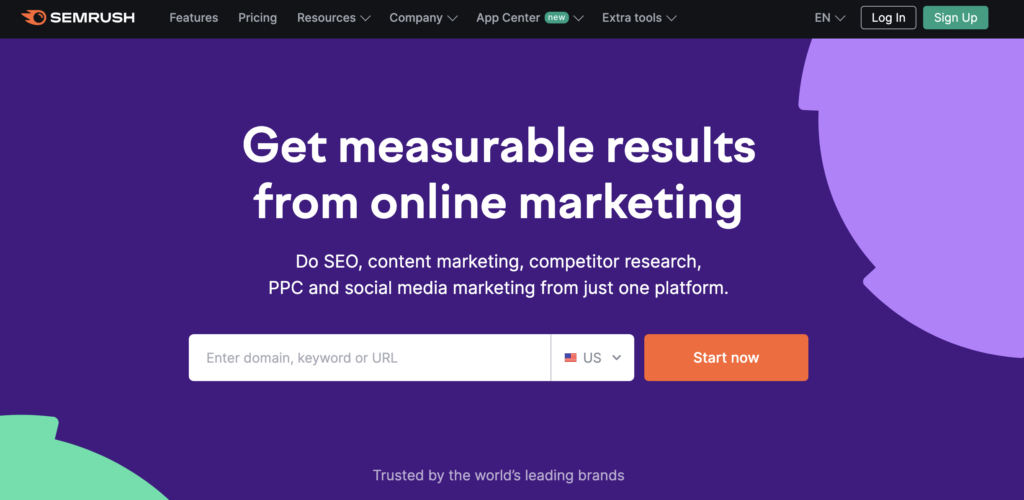
Initial Contact and Professionalism
Make your initial outreach count. Whether through a contact form or direct email, your communication should be clear and professional. Highlight your serious intent to buy and offer clear contact details to facilitate easy discussion. This shows the seller that you are a credible buyer, which could set a positive tone for the negotiation.
Understanding Value Beyond Price
Consider what aspects of the website hold the most value to you. Is it the domain, the content, or the audience it commands? Know what you’re willing to invest more in and where you might compromise. Broadening the negotiation beyond mere price to include terms that might benefit both parties, such as payment schedules, can lead to a more amicable agreement.
Contract and Clauses
Engage a legal professional to draft or review the purchase agreement. While it might seem like an additional expense, ensuring that your interests are protected through clear terms can save you from future complications. Clauses about non-compete and post-sale support are particularly useful in protecting your investment and easing the transition.
Payment Arrangements
Discuss and agree on a safe payment method. Ensure there’s clarity on payment staging; often, a deposit followed by a final payment upon transfer completion ensures security for both parties. Using trusted services like Escrow.com can mitigate risk, holding funds securely until all conditions are met.
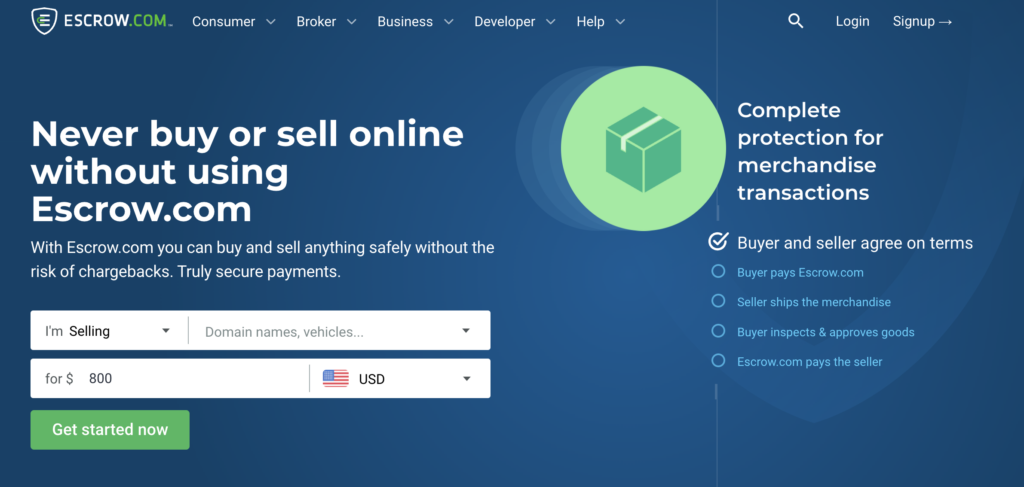
Negotiation Skills
Be prepared to negotiate. Having a clear understanding of your maximum budget and the site’s worth allows you to negotiate effectively. Remember, being respectful and understanding the seller’s viewpoint can make the negotiation smoother. It’s not just about driving down the price but arriving at a value that’s fair for both.
This strategy is not just about price but ensuring the terms align with your interests. By setting clear expectations, supporting your offer with data, and navigating the negotiation with respect and professionalism, you can maximize your chances of acquiring a website that meets your goals at the best possible deal.
Concluding, website acquisition is a complex process that requires due diligence, a solid strategy for negotiation, and a keen eye on the end goal. By following these strategies, buyers can navigate the intricacies of the deal, securing a website that aligns with their digital ambitions.
The Role of Legal Agreements in Website Transactions
Legal agreements play a pivotal role in the process of buying and selling websites. They not only formalize the terms and conditions of the sale but also offer protection to both parties involved in the transaction. A well-drafted contract outlines the responsibilities, expectations, and any contingencies that might arise during the transfer of ownership. This ensures clarity and can prevent disputes by providing a clear framework for the resolution of any issues.
Key Components of a Purchase Agreement
When drafting or reviewing a purchase agreement, several key components must be considered to safeguard the interests of both the buyer and the seller:
- Identification of Parties: Full legal names and contact details of both the buyer and the seller.
- Description of the Sale: Detailed description of what is being sold, including the domain name, website content, any associated intellectual property, and physical assets.
- Payment Terms: The total purchase price, payment schedule, and methods of payment (e.g., Escrow.com to provide additional security).
- Representations and Warranties: Statements from the seller about the state and legality of the website and its operations.
- Terms of Transfer: Detailed process and timeline for the transfer of the website and all related assets.
- Confidentiality Agreement: Provisions to ensure that sensitive information shared during the sale remains confidential.
- Dispute Resolution: Agreed-upon methods for resolving any disputes that may arise from the agreement.
Ensuring these elements are clearly stated and understood by both parties can lead to a smoother transaction process.
The Importance of Non-Disclosure Agreements (NDAs) in Website Sales
Non-Disclosure Agreements (NDAs) are crucial in the early stages of negotiating a website sale. They protect both parties by ensuring that any confidential information shared during discussions remains private. For the buyer, this could include business strategies or plans for the website post-acquisition. For the seller, it might involve sensitive financial data or proprietary technologies.
An effective NDA should clearly outline what constitutes confidential information, who can access it, and the conditions under which it can be used. By creating a secure environment for open dialogue, NDAs facilitate trust and enable both parties to assess the transaction’s potential more accurately. Furthermore, they provide a legal recourse in the event of a breach, offering an additional layer of security for the information shared during the negotiation process.
In summary, the inclusion of legal agreements in website transactions cannot be overstated. They offer a formal structure for negotiations, protect the interests of all parties involved, and set the groundwork for a successful transfer of ownership. As such, parties should approach these documents with the utmost care and consider seeking legal advice to ensure their interests are well-protected.
Post-Purchase Steps: How to Successfully Transition and Scale Your New Website
Completing the purchase of an existing website is merely the beginning of an exciting journey into digital entrepreneurship. The steps you take immediately after acquisition and your strategies for long-term growth are crucial in transitioning the website into a flourishing online business. With the right approach, you can enhance the site’s value, increase its audience reach, and maximize your investment. Let’s explore the essential steps and strategies to ensure a smooth transition and scalable growth for your new digital asset.
Immediate Steps After Acquiring a New Website
Once the website officially becomes yours, it’s time to secure and assess your new asset.
- Change All Administrative Access: Similar to changing the locks when you buy a new house, update all login credentials for the website’s backend, hosting, and associated accounts to ensure security.
- Conduct a Comprehensive Site Audit: Evaluate the website’s content, SEO, usability, and current performance metrics. Identifying areas for improvement or potential issues early can save you time and resources in the long run.
- Review and Update Content and SEO: Assess the quality of existing content, and start optimizing for SEO. Quick wins can be achieved by updating meta titles and descriptions, heading tags, and improving content quality on high-traffic pages.
- Establish Your Brand Presence: Update the website’s branding elements to reflect your ownership. Consider a site redesign if it aligns with your vision for the site’s future.
Long-Term Growth Strategies for Your Online Business
With the immediate post-purchase actions out of the way, focus shifts to scaling your website into a thriving online business.
- Content Strategy Development: Create a detailed content strategy that aligns with your target audience’s needs and interests. High-quality, valuable content is key to attracting and retaining users and improving your site’s SEO.
- Enhance User Experience (UX): An intuitive, fast-loading website encourages visitors to stay longer and reduces bounce rates, positively impacting your SEO and conversion rates.
- Expand Your Digital Marketing: Invest in a variety of digital marketing tactics, including social media marketing, email marketing, and pay-per-click (PPC) advertising, to drive targeted traffic to your site.
- Monetization Strategies: Explore diverse revenue streams beyond traditional advertising, such as affiliate marketing, selling digital products, or offering subscription services.
- SEO Optimization: Continuously optimize your website for search engines by conducting keyword research, optimizing site structure, and building quality backlinks. This improves visibility and attracts organic traffic.
- Use Analytics for Data-Driven Decisions: Regularly review your site’s performance analytics to understand user behavior, identify trends, and make informed decisions to further optimize your site for growth.
Acquiring an existing website and transforming it into a successful business requires a strategic approach and consistent effort. By securing your site immediately after purchase and implementing a focused growth strategy, you can scale your online presence and achieve your business goals. Remember, the journey of website ownership is ongoing, and staying adaptable to changes in the digital landscape is key to long-term success.
Common Pitits to Avoid When Buying Websites
Entering the world of website acquisition can be an exhilarating step toward growing your digital portfolio or beginning a new venture. However, this process is fraught with potential pitfalls that can turn an exciting investment into a regrettable expense. Being aware of common scams and taking strategic steps can safeguard your investment and ensure a smoother purchase process.
Not Receiving the Actual Website
One of the most disheartening experiences is paying for a website only to find out you’ve been scammed. Unlike physical goods, digital assets like websites don’t have the same straightforward transaction process. Utilizing payment platforms like PayPal might give a false sense of security, as they are not explicitly designed for non-tangible items such as websites. Furthermore, specialized services like Escrow focus primarily on domain transfers, not the entirety of the site. This gap can leave you vulnerable to sellers who disappear after payment or provide you with empty files dressed up as your new website. To mitigate this risk, insist on utilizing services like Escrow.com that offer protection for both domains and site contents and verify the seller’s credibility thoroughly before proceeding.
Data Misrepresentation
Another frequent hurdle buyers face is the misrepresentation of site data. Sellers may present inflated traffic numbers or revenue statistics to make their site appear more lucrative or popular than it actually is. Addressing this challenge requires vigilance and independent verification. Use third-party tools such as Google Analytics to confirm site traffic and scrutinize any provided data for consistency. Trusting your instincts and conducting comprehensive research are your best defenses against this form of scam.
Page Rank Scams
Page rank, a metric once heavily relied upon to gauge a site’s search engine standing, can be manipulated. Scammers can create a facade of high page rank to entice uninformed buyers. However, page rank should not be your sole criteria for assessing a site’s value. Delve deeper into genuine indicators of a website’s health, such as organic search rankings, targeted keywords performance, and the quality of backlinks. Tools like SEMrush and Ahrefs offer detailed insights beyond mere page rank, helping you make a more informed purchase decision.
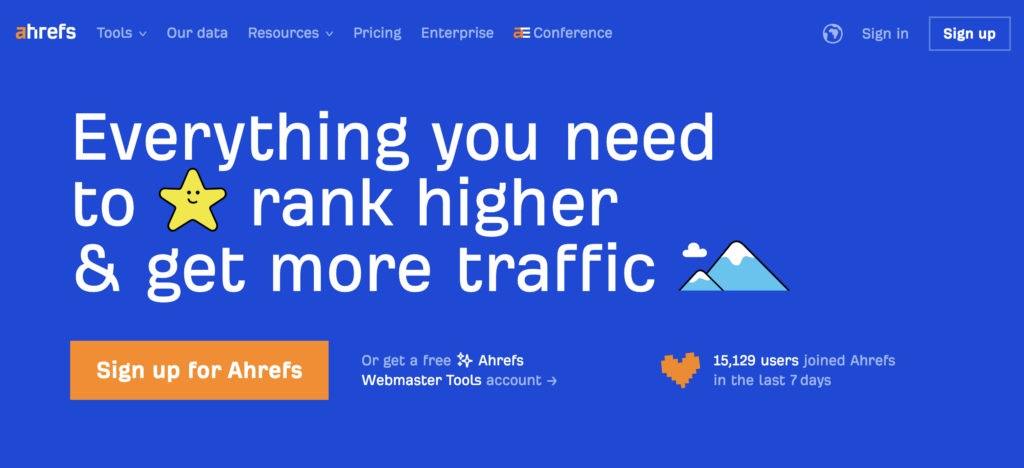
Underestimating the Importance of Growth Potential and Authenticity
Focusing solely on current achievements such as traffic or revenue can overshadow the importance of assessing a website’s potential for growth and the authenticity of its operations. Consider websites with a solid foundation of monthly active users and clear avenues for scaling up. Ensuring that the website aligns with your business goals and has legitimate operations can increase the probability of success. Verify the seller’s claims about the website’s performance and potential by conducting your research, seeking advice from professionals, and possibly engaging in discussions with the previous owner to understand the site’s operational nuances better.
Selecting the right website to buy requires more than just an assessment of immediate benefits. It involves diligent research, verification of seller claims, and a strategic approach to avoid common pitfalls. Be particularly wary of scams relating to non-delivery, data falsification, and deceptive ranking indicators. By prioritizing authenticity, potential for growth, and the reliability of data, you can navigate the complexities of website acquisition more effectively, helping ensure your investment yields the desired returns and contributes positively to your digital presence.
Real-Life Success Stories: Transforming Acquired Websites into Lucrative Assets
Embarking on the journey of entrepreneurship through acquiring existing websites has opened up lucrative opportunities for many. The stories of individuals who have transformed these acquisitions into profitable ventures are not just inspiring they shed light on the potential that lies within the digital marketplace. This article explores real-life success stories that demonstrate the impactful returns from investing in digital assets.
One compelling example is Niki Cordell, who successfully sold her business for $138K through Flippa. Niki’s journey into entrepreneurship illustrates the potential for substantial financial gain when choosing the right digital asset. Her focus on understanding the website’s audience and effectively leveraging its existing value helped position the business as a prime acquisition target.
Similarly, another entrepreneur managed to turn a passion into profit by making over $650K in acquisitions on Flippa. As a father looking to secure his family’s financial future, his journey underscores the importance of strategic investments in online businesses. His story is a testament to the power of patience, research, and the right market conditions.
Alvaro’s transformation from a door-knocking salesman to celebrating a successful exit with Flippa marks another inspiring story. His shift to the digital domain allowed him to leverage his entrepreneurial skills in a new, profitable way, showcasing the diverse paths to success within the online business world.
These narratives are not just stories of financial success; they are a blueprint for those looking to enter the market of buying and selling websites. Each entrepreneurs journey highlights different strategies, from the importance of due diligence and understanding market trends to recognizing the value of a digital asset not just by its current standing but by its potential.
Moreover, these stories reveal a critical aspect of the digital marketplace—the unpredictability of online business and the essential nature of staying adaptable. As Google updates and market trends can significantly affect a website’s visibility and profitability, the entrepreneurial spirit of adaptability, research, and innovation is what drives success in this domain.
Utilizing platforms like Flippa, entrepreneurs have access to a plethora of opportunities to buy existing websites, transform them into profitable entities, and even pursue successful exits. The journeys of Niki, a dedicated dad, and Alvaro serve as motivating examples for prospective buyers and sellers, illustrating that with the right approach, the acquisition of an existing website can indeed be transformed into a lucrative asset.
In summary, the internet offers vast possibilities for entrepreneurship and wealth creation. As seen through the experiences shared by Flippa users, success in the digital marketplace requires a balance of strategic thinking, market research, and a readiness to adapt. These success stories not only inspire but also guide others towards making informed decisions in the pursuit of transforming acquired websites into valuable, income-generating assets.
FAQs: Answering Your Top Questions About Buying Websites in 2024
Entering the market to purchase an established website can be an exciting venture. However, it comes with its unique set of challenges and considerations. To assist you in this process, we’ve compiled a list of frequently asked questions and provided clear, straightforward answers that aim to demystify the buying process and set you up for success in the digital marketplace.
Why Should I Consider Buying an Existing Website?
Buying an existing website offers a leapfrog opportunity in your entrepreneurial journey. Unlike starting from scratch, an established website comes with an existing audience, revenue streams, and search engine rankings. This can significantly shorten the time it takes to see a return on your investment. Additionally, it allows you to focus on scaling the business rather than laying the foundational elements.
What Should I Look For in a Potential Website Purchase?
- REMOVEDnue Generation: An attractive website is one that has proven revenue models and demonstrates potential for further growth.
- Niche Familiarity: Ensuring the website operates within a niche you’re comfortable with or have knowledge about can ease the management and scaling process.
- SEO Value: Websites with strong SEO practices in place promise better visibility and organic traffic, crucial for sustaining and growing your online business.
- Quality Content: Engaging, high-quality content not only attracts but retains customers, making it a vital element to consider.
How Can I Protect My Investment When Buying?
To safeguard your investment, due diligence is key. Verify all provided financials and traffic stats through independent means. Utilize services like Escrow.com to manage the transaction safely, ensuring that neither party is exposed to unnecessary risk. Moreover, considering a period of post-sale support from the seller can provide invaluable insights and facilitate a smoother transition.
What Are Some Common Pitfalls to Avoid?
- Skipping Due Diligence: Not verifying the details around a website’s revenue, traffic, and operations can lead to unpleasant surprises.
- Overestimating Ability to Improve the Site: It’s important to have a clear, executable plan for enhancing the website, rather than just ambition.
- Neglecting Legal and Financial Checks: Ensure all legal and financial aspects, like copyright and trademark issues, are cleared before proceeding.
When is the Right Time to Seek External Help?
In summary, buying an established website can be a smart strategy for entering the digital marketplace at an advanced level. By adhering to due diligence, understanding the ins and outs of the website you’re interested in, and preparing for the post-purchase phase, you can significantly enhance your odds of success. Always remember, the goal is to not only acquire a digital property but to grow it and make it thrive in the competitive digital arena of 2024.
Conclusion
In summary, combating ecommerce, payment, and retail fraud demands continuous vigilance and the adoption of sophisticated tools. In a world where digital transactions are becoming the norm, businesses need to arm themselves with knowledge and technology to safeguard their operations. Integration of tools that offer online image editing and tutorials can also enhance the digital experience for businesses and consumers alike, making the internet a safer place for commerce.
